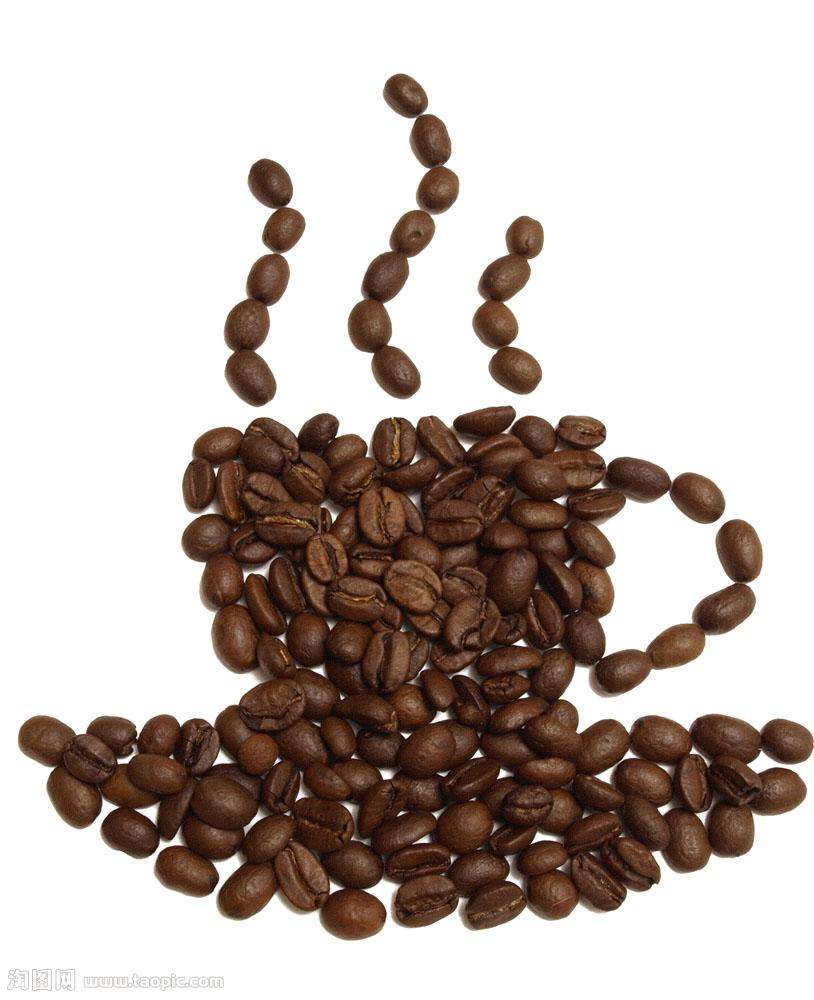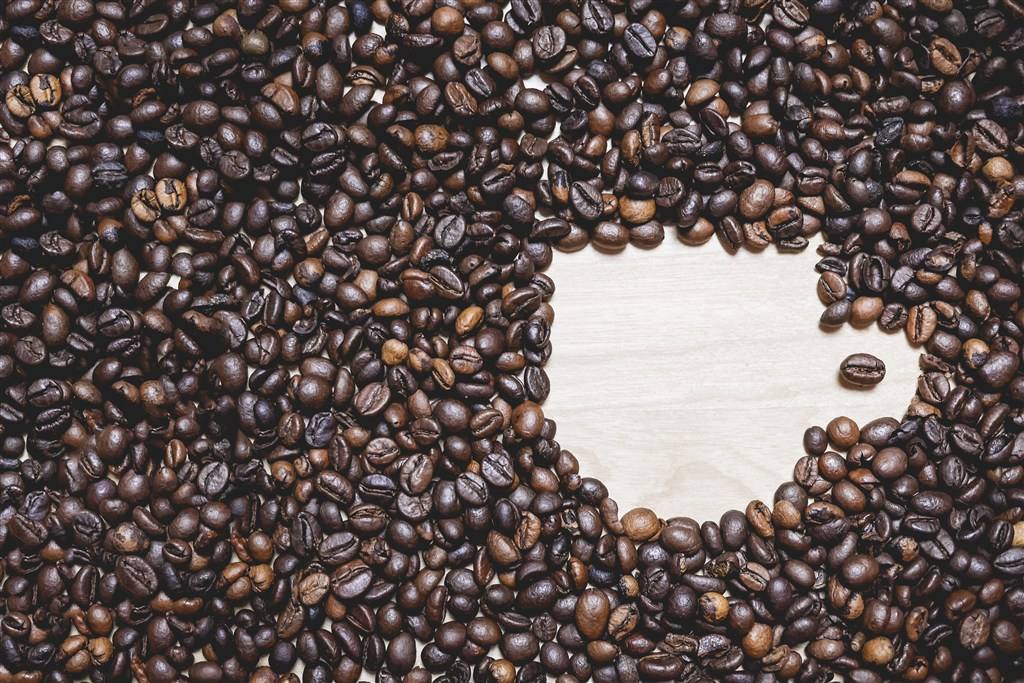How do Hawaiian coffee beans taste? are Hawaiian coffee beans good?
Pay attention to coffee reviews (Weixin Official Accounts vdailycom ) and find a beautiful cafe to open your own shop
Characteristics of Hawaiian Coffee
Hawaii straddles the latitude of 19 to 22 degrees, south of the Tropic of Cancer, and is a natural perfect coffee-growing area. The 50th state of the United States, 2400 miles away from the west coast of the United States, is the only coffee-producing state in the United States. Hawaii's Kona is also internationally renowned and known as one of the best coffees in the world. The volcanic soil and tropical climate, combined with light humidity and regular afternoon showers, create an idyllic ideal growing environment, adding some subtle but unique flavor characteristics to the coffee beans here.
In general, Hawaiian coffee viscosity is medium thin, aroma is medium strong, and one of the bright acids to achieve a harmony.

Although coffee trees are grown for commercial purposes on all islands in Hawaii, at present, the number of coffee plantations on the Big Island is the largest, with about 650 plantations. However, these coffee plantations are relatively small, totaling less than 2000 acres of plantation forest land. There are only 25 coffee plantations in operation on Maui, Molokai, Oahu and Kauai Islands, but the coffee plantations in these places are much larger than those on the Big Island. The total yield is also more than three times greater than that of Big Island coffee plantations. Amazingly, Kauai has the largest coffee growing area of any island, at over 4000 acres, managed by the same operator;Molokai has only 550 acres, and Maui and Oahu have even fewer. Most Hawaiian coffee farmers today still harvest only fresh cherries to sell, but in recent years more and more people have dedicated themselves to adding value to their coffee bean products, so most of them are post-processing, drying, grinding and roasting their own coffee beans.
Hawaii's most famous coffee bean and coffee growing area is Konakona, an area located in the southwest of the Big Island, 20 miles long and 2 miles wide, covering the Hualalai and Mauna Loa slopes. Only coffee beans grown in this area and subject to the most stringent certification standards can be sold under the Kona brand name. Today, about 100 farms produce coffee beans that meet the above standards. More and more farms are expected to follow suit in the future. The Hawaiian Islands have long been considered paradise on earth, and after nearly two centuries of efforts to grow coffee, the term kona has become almost synonymous with quality.
Now other hawaiian islands are trying to catch up to kona's high quality standards. Hawaii today, for many beach activities and coffee lovers alike, is really like mark. Twain's image is modest and the most pleasant place on earth.
Hawaii KONA:
There is a saying that Blue Mountain is the king of coffee and KONA is after coffee. However, compared with Blue Mountain, KONA is obviously not well-known in China, and there is no unified translation. Moreover, there have been fraud scandals before, and it is not easy to buy them in China. Due to the island terrain and volcanic soil, Hawaiian coffee has a very special taste, not too strong, not too sour and has a mellow taste, with pleasant wine aroma and acid. KONA coffee is divided into four grades, namely Extra Fancy, Fancy, Prime and Gr. No. 1, etc. However, due to low yields and high production costs, Kona prices are catching up with Jamaica Blue Mountain in the market and good Kona beans are becoming increasingly difficult to obtain in the face of increasing demand for fine coffee in recent years." If I have a chance to go to Hawaii, I will try it.
- What are the taste characteristics of Kona coffee?
For coffee lovers, Kona coffee should be the best choice if they prefer fresh and warm coffee. Before tasting, you will be attracted by the light coffee aroma, after tasting, that kind of not strong coffee flavor makes people long aftertaste.
- Why is 100% Kona coffee so expensive?
To sum up, one of the main factors is expensive labor costs. Most of the world's best-known coffee producers are located in Third World countries, where cheap labor is generally available. The Kona coffee belt stretches along the south coast of Hawaii's Big Island, where workers have been picking and processing coffee beans in a purely manual way. Industrial mass production methods are not popular here. Perhaps this has something to do with Hawaii's relaxed lifestyle.
As you can see from the above, pure 100% Kona coffee is not cheap. The cheap 10% Kona coffee sold on the market is actually made by blending other foreign coffee beans. These cheap coffees also pose a serious threat to the livelihoods of local coffee farmers and have been actively involved in efforts to obtain the designated origin certification of Kona coffee.
- Is Kona Coffee Overrated and Overrated?
This question is like the question of many wine lovers: Is the red wine of Napa Valley Winery in California, USA, good? In fact, it all depends on the place of purchase and origin. Kona Coffee has also been voted the best coffee by many professional coffee tasters, expressing their unbounded expectations of the great potential of Hawaiian real estate coffee.
- Hawaii Kona Coffee Culture Festival:
Every November, the Kona region of Hawaii hosts the Kona Coffee Cultural Festival, celebrating the harvest of Kona coffee beans and honoring the 180-year tradition of Hawaiian coffee beans. Over the course of the 10-day event, more than 40 coffee culture and sports events will be held on Hawaii's Big Island and Oahu to spread knowledge of Kona coffee and give visitors from around the world the opportunity to get close to Hawaiian Kona coffee beans.
Important Notice :
前街咖啡 FrontStreet Coffee has moved to new addredd:
FrontStreet Coffee Address: 315,Donghua East Road,GuangZhou
Tel:020 38364473
- Prev

Classification of Colombian coffee beans description of flavor and taste characteristics of Colombian coffee beans
Follow Cafe (Wechat official account vdailycom) found that Beautiful Cafe opened a small shop of its own as a segment of the entire coffee market, with boutique coffee accounting for about 10-15%, which is about equivalent to the annual harvest in Colombia. Feeling the good development trend of the boutique coffee market, Colombian species
- Next

The price of Hawaiian coffee, details of Hawaiian coffee
Follow the caf é (Wechat official account vdailycom) found that the price of Hawaiian coffee is very low, the output of Hawaiian coffee is very low, and the price of ripe beans is about twice that of raw beans. Of all coffee producers, Hawaii has the most stringent management of the coffee industry, the highest labor costs and the best level of investment. Hawaiian coffee
Related
- Detailed explanation of Jadeite planting Land in Panamanian Jadeite Manor introduction to the grading system of Jadeite competitive bidding, Red bid, Green bid and Rose Summer
- Story of Coffee planting in Brenka region of Costa Rica Stonehenge Manor anaerobic heavy honey treatment of flavor mouth
- What's on the barrel of Blue Mountain Coffee beans?
- Can American coffee also pull flowers? How to use hot American style to pull out a good-looking pattern?
- Can you make a cold extract with coffee beans? What is the right proportion for cold-extracted coffee formula?
- Indonesian PWN Gold Mandrine Coffee Origin Features Flavor How to Chong? Mandolin coffee is American.
- A brief introduction to the flavor characteristics of Brazilian yellow bourbon coffee beans
- What is the effect of different water quality on the flavor of cold-extracted coffee? What kind of water is best for brewing coffee?
- Why do you think of Rose Summer whenever you mention Panamanian coffee?
- Introduction to the characteristics of authentic blue mountain coffee bean producing areas? What is the CIB Coffee Authority in Jamaica?

